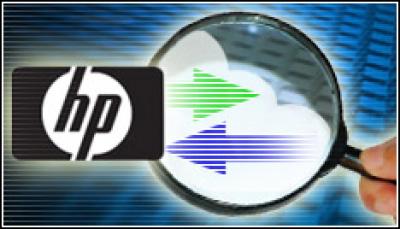

Microsoft and Hewlett-Packard announced a $250 million (£153m), three-year agreement on 13 Jan. to mutually invest in engineering, sales and marketing initiatives for the enterprise.
The deal will see the companies collaborate on, among other things, management and virtualisation solutions across the data centre, pre-packaged solutions for data warehousing and transaction processing, and the Windows Azure cloud platform.
HP and Microsoft executives said their joint engineering work will result in Microsoft applications, such as the SQL Server database or Exchange collaboration software, running faster and better on HP’s x86-based ProLiant servers than on other OEMs’ systems. The expectation, they added, is that customers running those applications will be attracted to a higher level of performance from using the HP servers, or that HP hardware users will be enticed to move their database workloads onto SQL Server to take advantage of the benefits from the tighter partnership.
In theory, the technical integration of HP Insight Software, HP Business Technology Optimisation software and Microsoft System Center with Microsoft Hyper-V Server will automate application deployment and facilitate infrastructure-to-application monitoring; something that could be seen as necessary by customers looking to ensure interoperability in a heterogeneous data centre environment.
In a conference call with reporters and analysts on 11 Jan, Microsoft CEO Steve Ballmer suggested that the deal was the natural outcropping of the quarter-century relationship between the two companies. He also emphasised that the cloud was a “driving force” behind the agreement.
“The hardware, virtualisation, management layer, app model—that needs to be an integrated stack, and it’s on that we’re focusing a technical collaboration,” Ballmer said. “Our customers will need hardware that’s optimised. Microsoft needs to evangelise that model.” Microsoft will invest in HP hardware for the Windows Azure infrastructure, with both companies collaborating on services offered through the cloud.
During the conference call, executives from both companies took pains to emphasise that this particular collaboration differed from ones in the past.
“This is the deepest level of collaboration and integration and technical work that we’ve done that I’m certainly aware of,” Mark Hurd, HP chairman and CEO, told listeners. “Here you’re talking about not just bundling, but an engineering alignment.”
Hurd also tried to suggest that the deal, apparently in the works since April 2009, was not a competitive response to Oracle or other IT companies in the enterprise space.
“I wouldn’t want you to think this was a reaction to anything,” Hurd said.
“We’re driving ahead with HP, but we’re going to work with guys that HP competes with,” Ballmer added, “and HP will work with guys that we compete with.”
Some products resulting from the collaboration will apparently be available immediately, while others are slated to roll out into the marketplace over the next three years. In addition to hardware and software offerings, the two companies also plan to collaborate on the service aspect, in particular by holding workshops and offering support for implementation and maintenance.
Editor’s Note: Senior editor Jeff Burt contributed to this article.
Italy, White House issue joint statement condemning 'discriminatory' tech taxes as US seeks to end…
Italian newspaper Il Foglio says four-page AI-generated supplement published every day for a month shows…
Huawei launches Titanium edition of Eyewear 2 smart glasses with gesture controls and AI-powered simultaneous…
Gerald Yin, founder, chairman and chief executive of key Chinese chip tools maker AMEC, drops…
Intel reportedly tells clients in China some of its AI chips will now require export…
New Intel chief executive Lip-Bu Tan flattens company's leadership structure as he seeks to end…